- YouTube
- TikTok
OU student studying light pollution awarded prestigious NSF fellowship
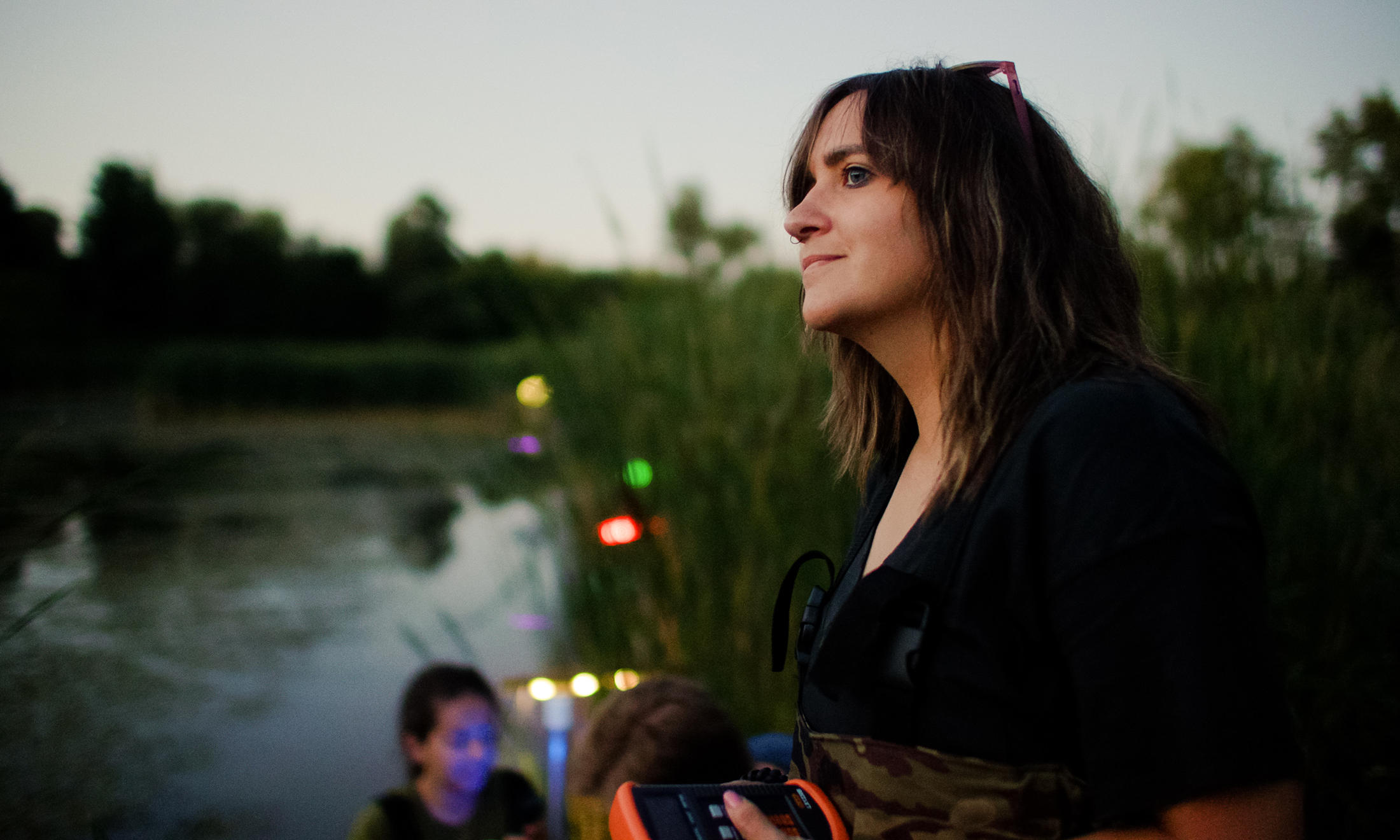
Elizabeth Parkinson
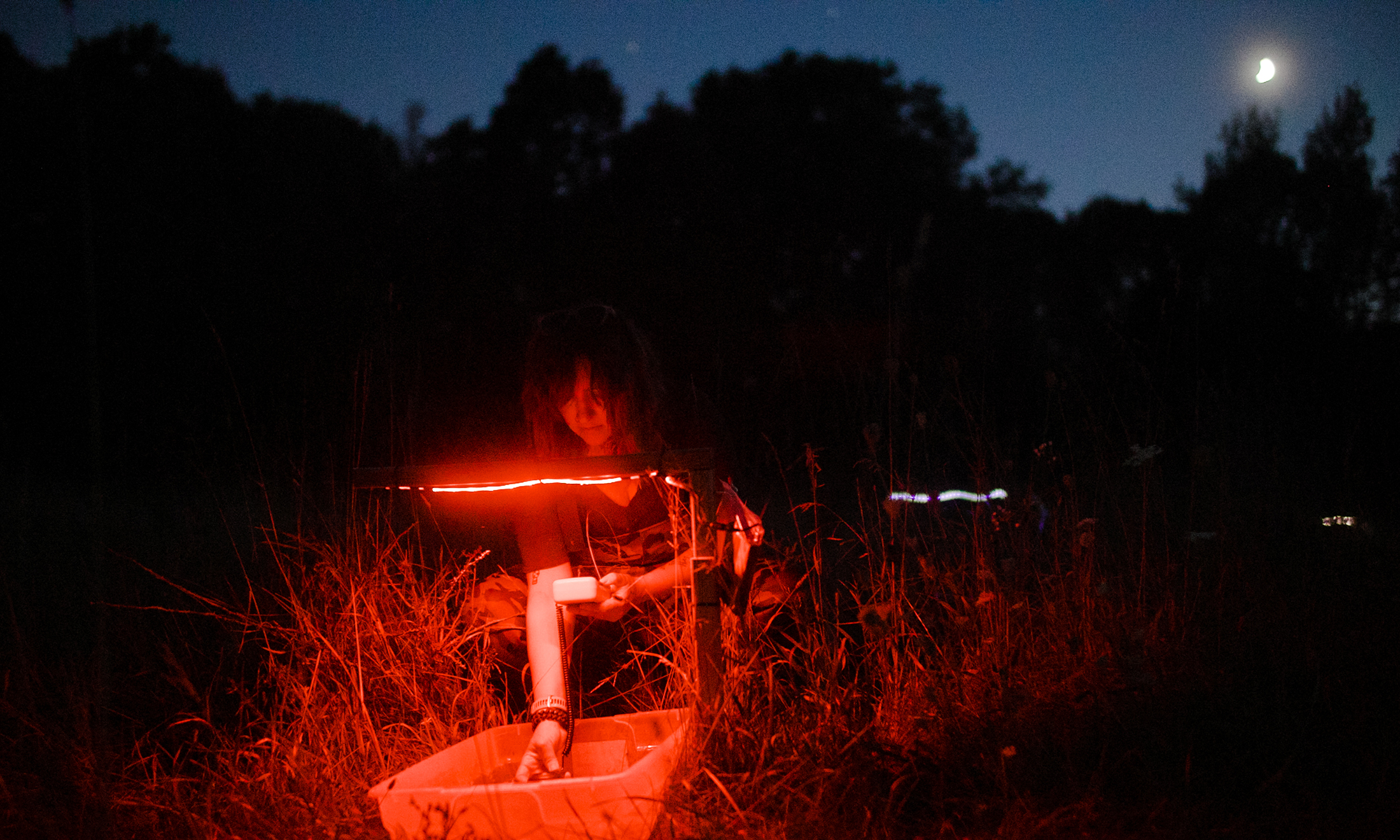
Elizabeth Parkinson at the experiment site at Seven Ponds Nature Center in Dryden, Michigan
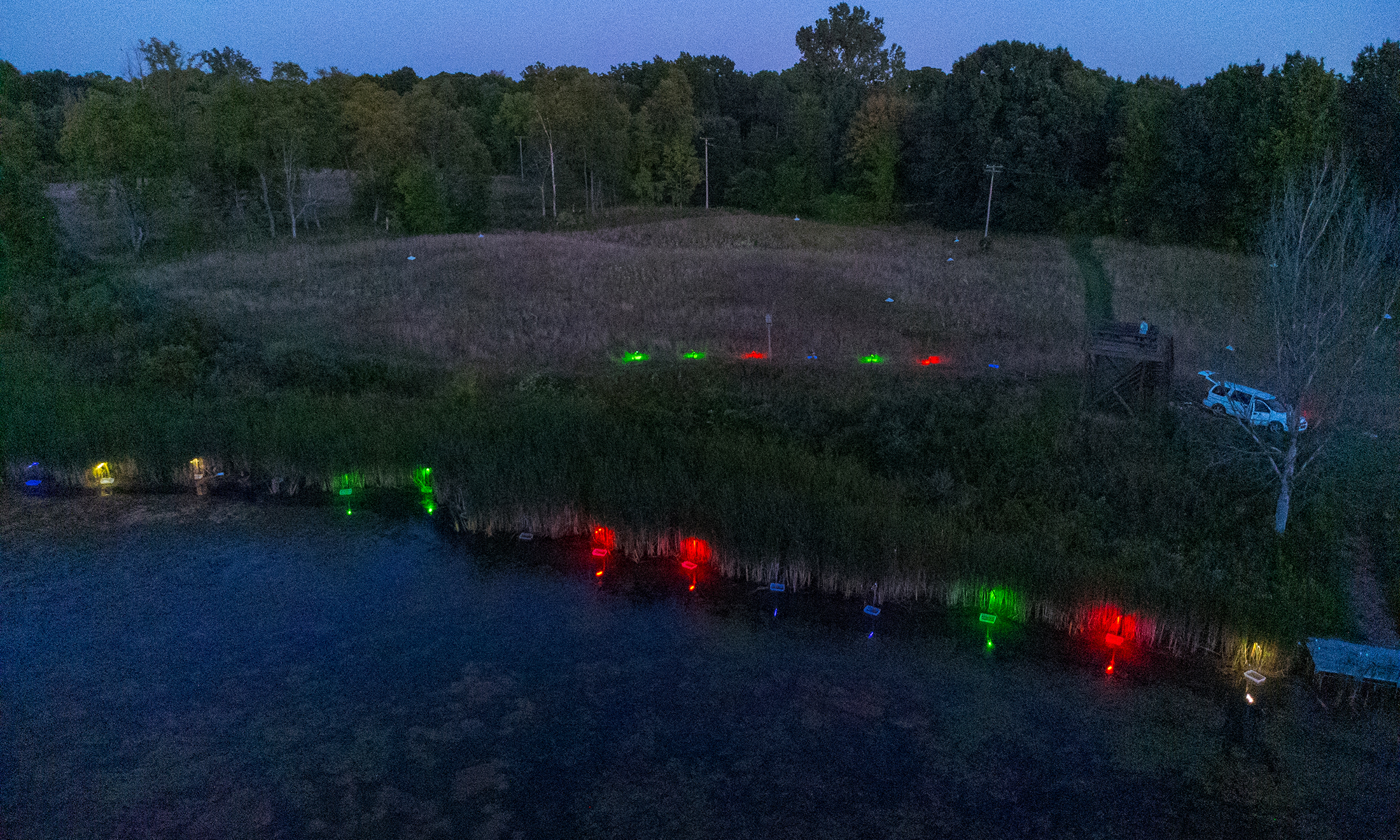
Insect traps at the water's edge
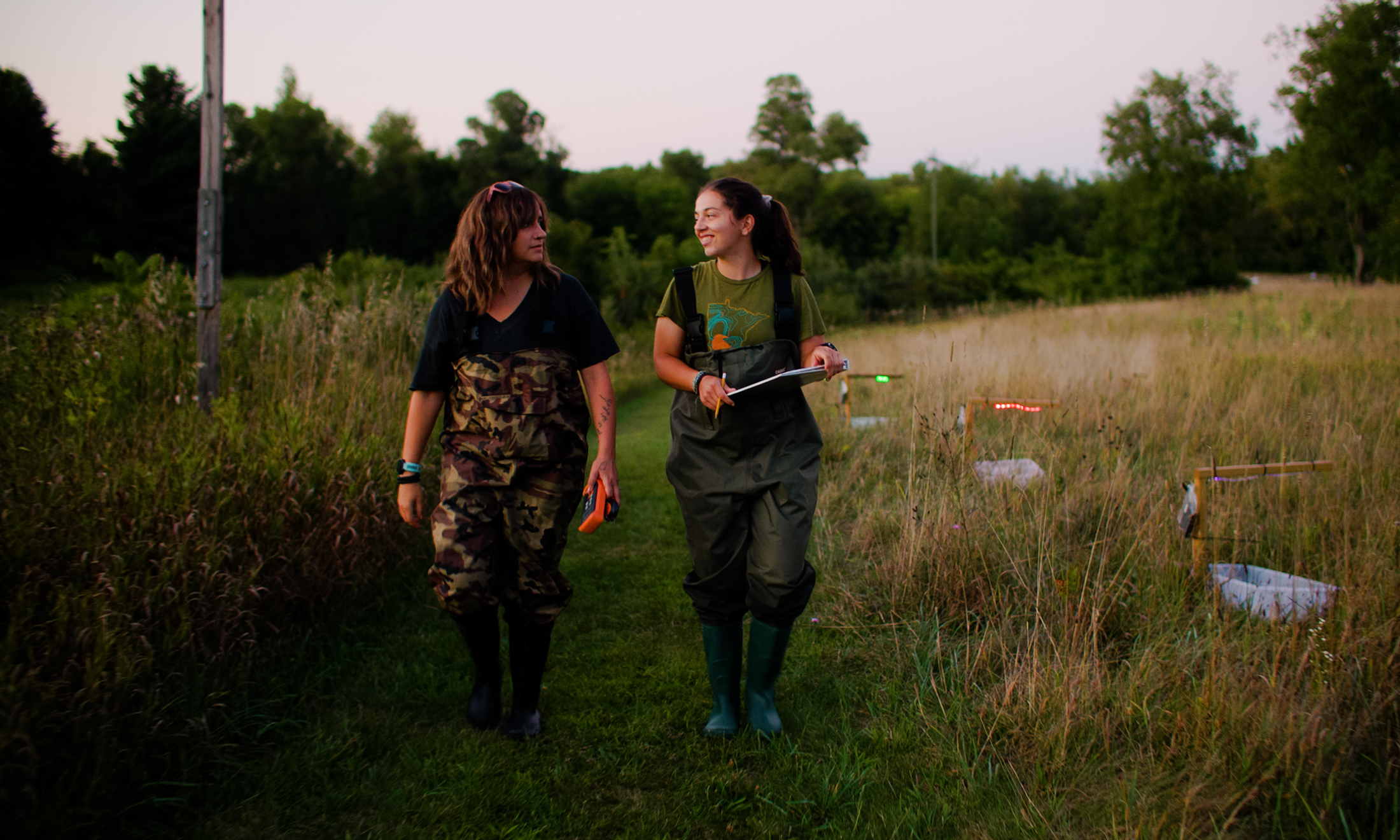
Elizabeth Parkinson and Katri Studtmann
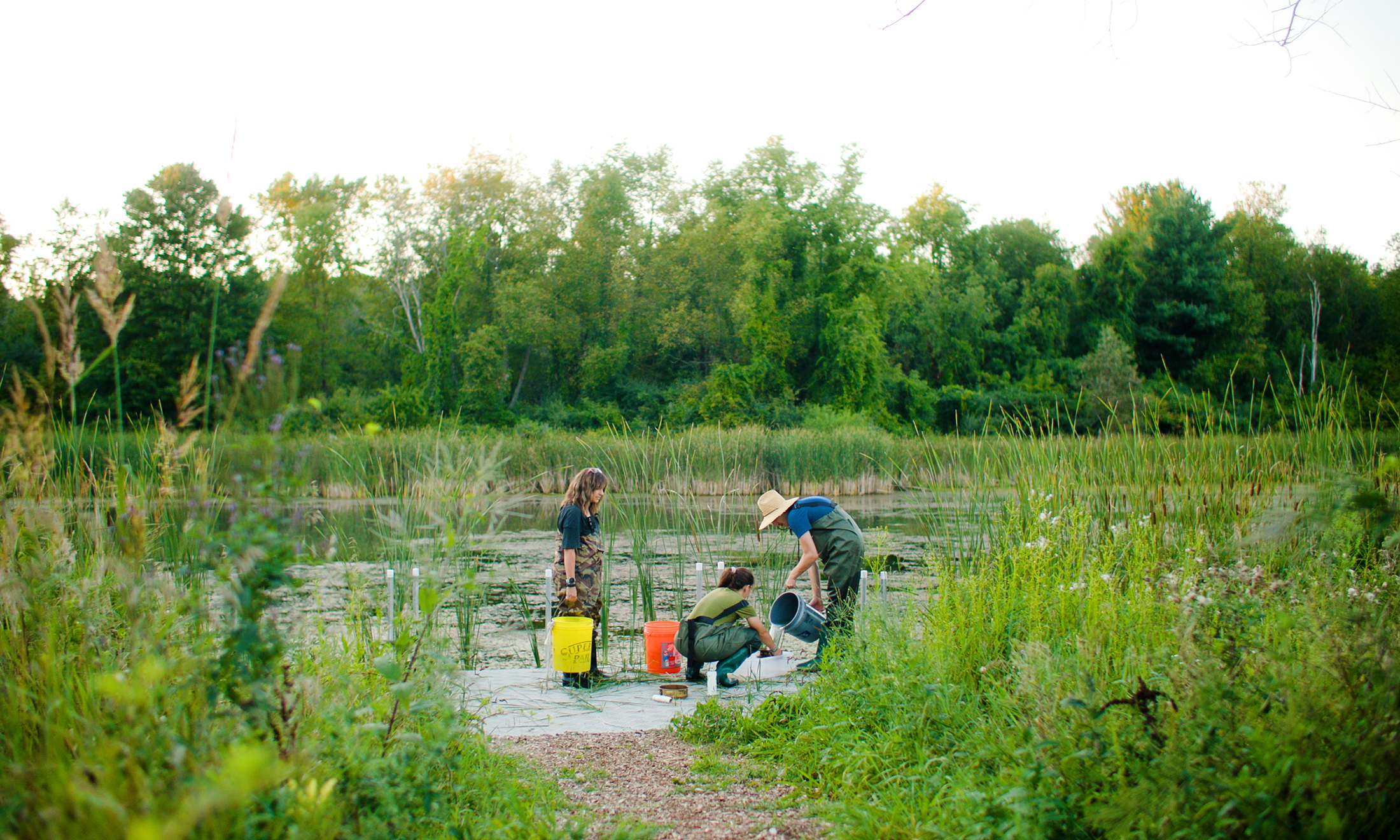
Elizabeth Parkinson and Katri Studtmann with Zach Schwab, an OU master's student in mechanical engineering
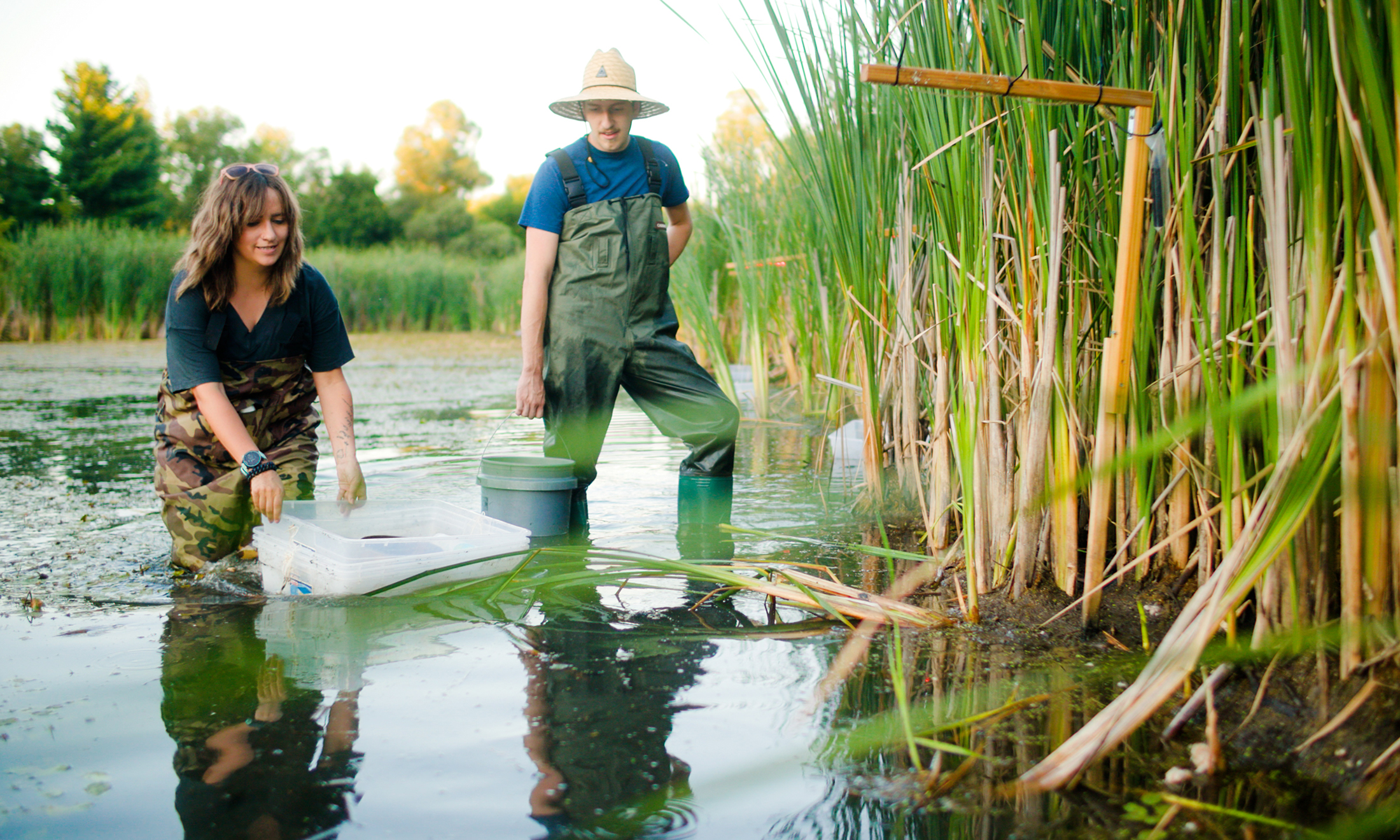
Elizabeth Parkinson and Zach Schwab
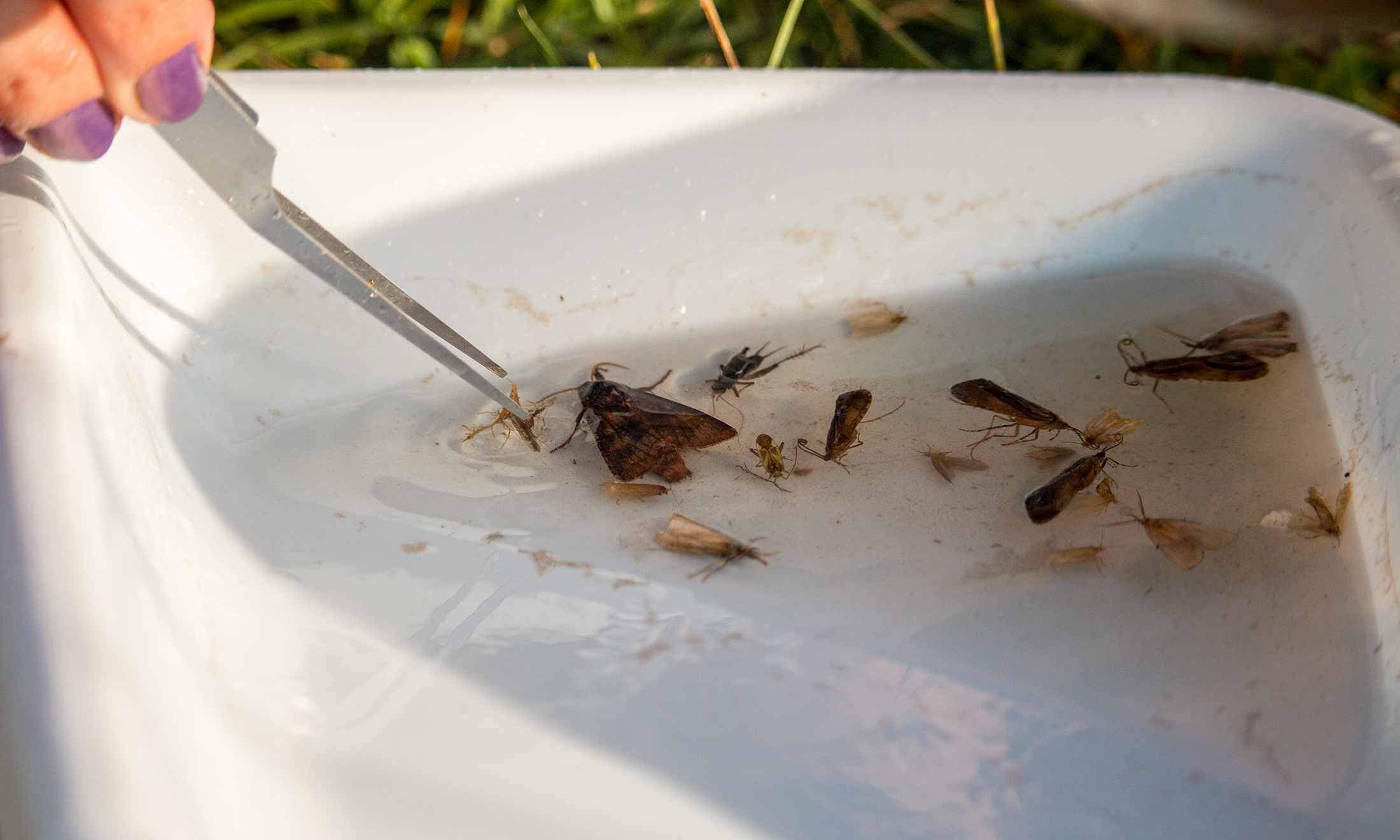
Insects trapped during the experiment
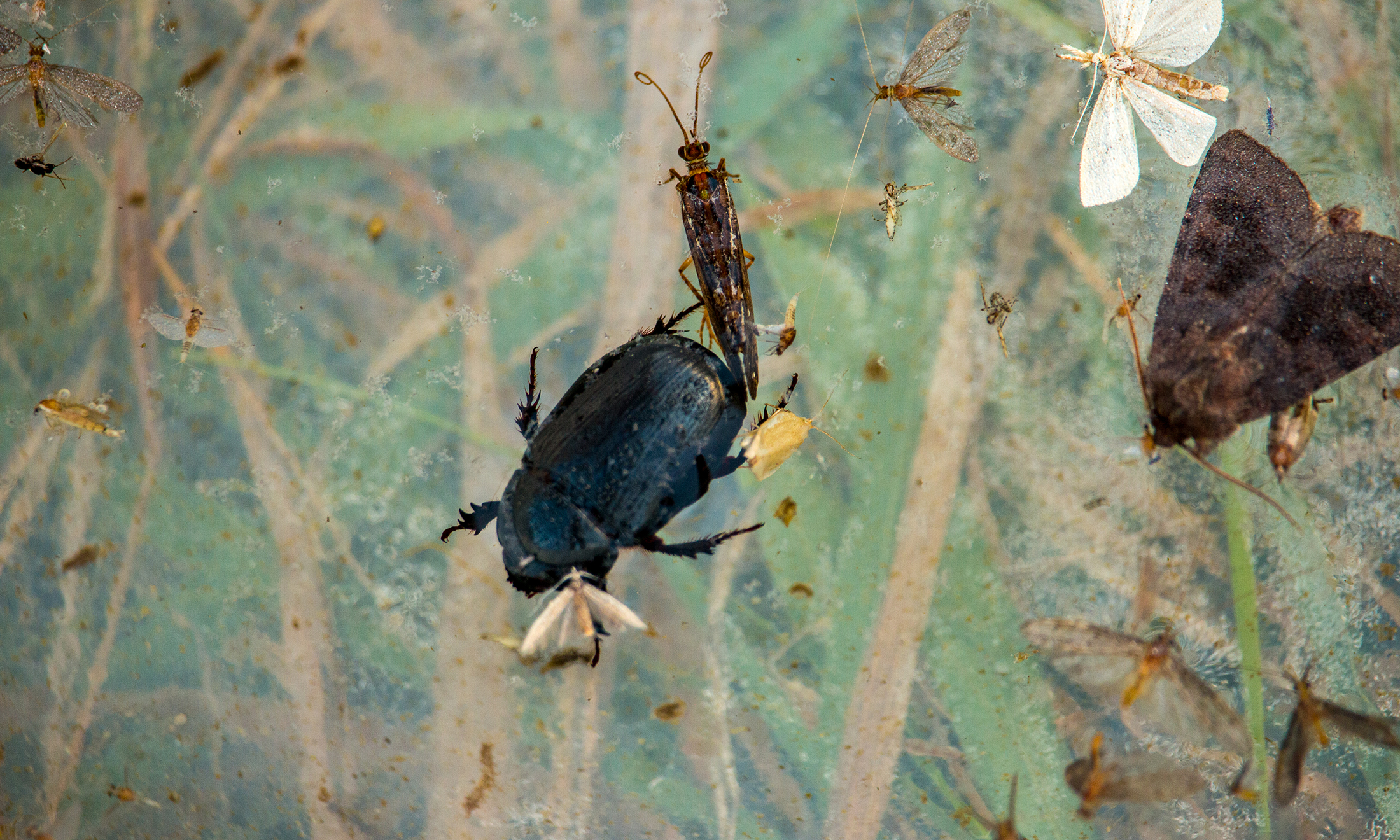
Insects trapped during the experiment
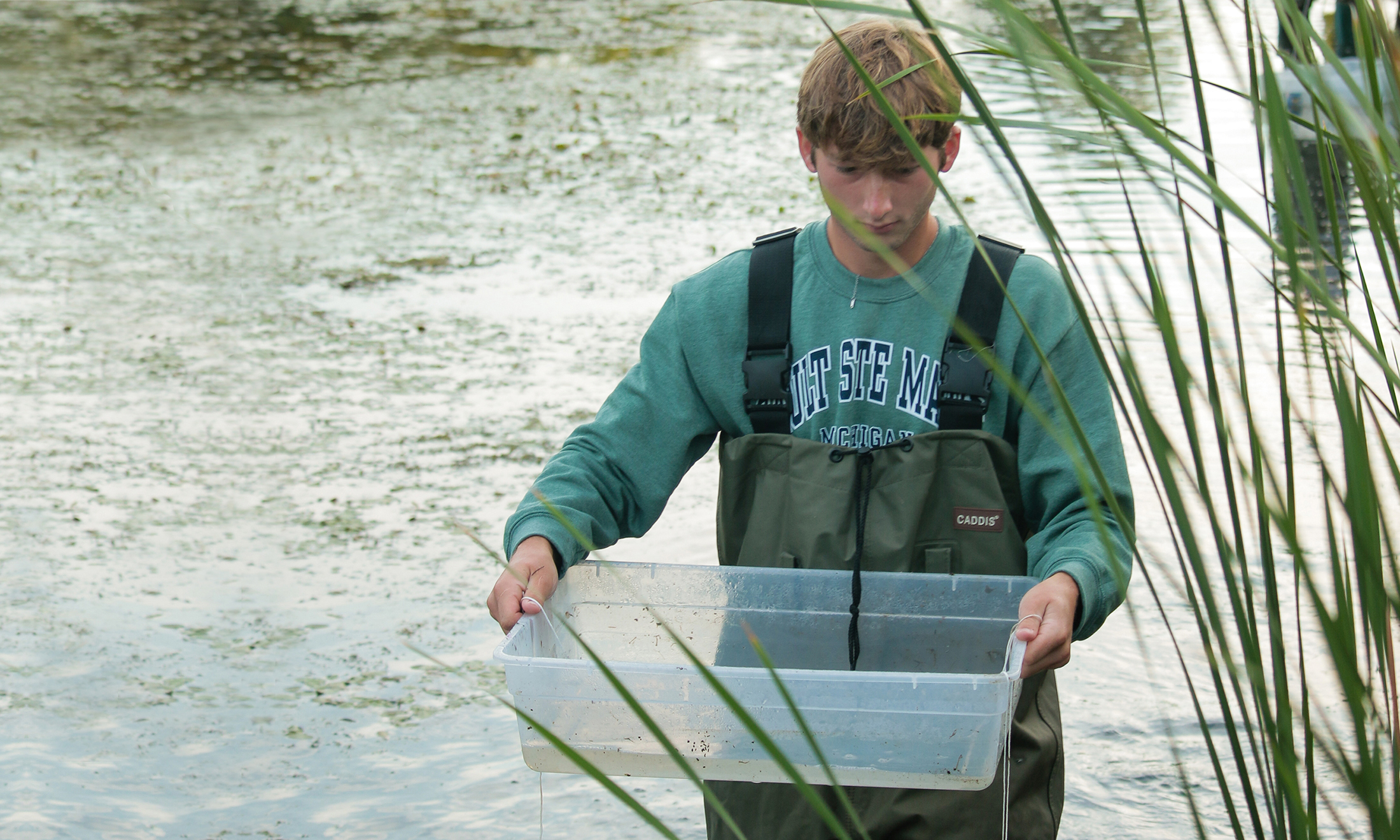
OU student and Aquatic Ecology Lab member Ryan Andrews
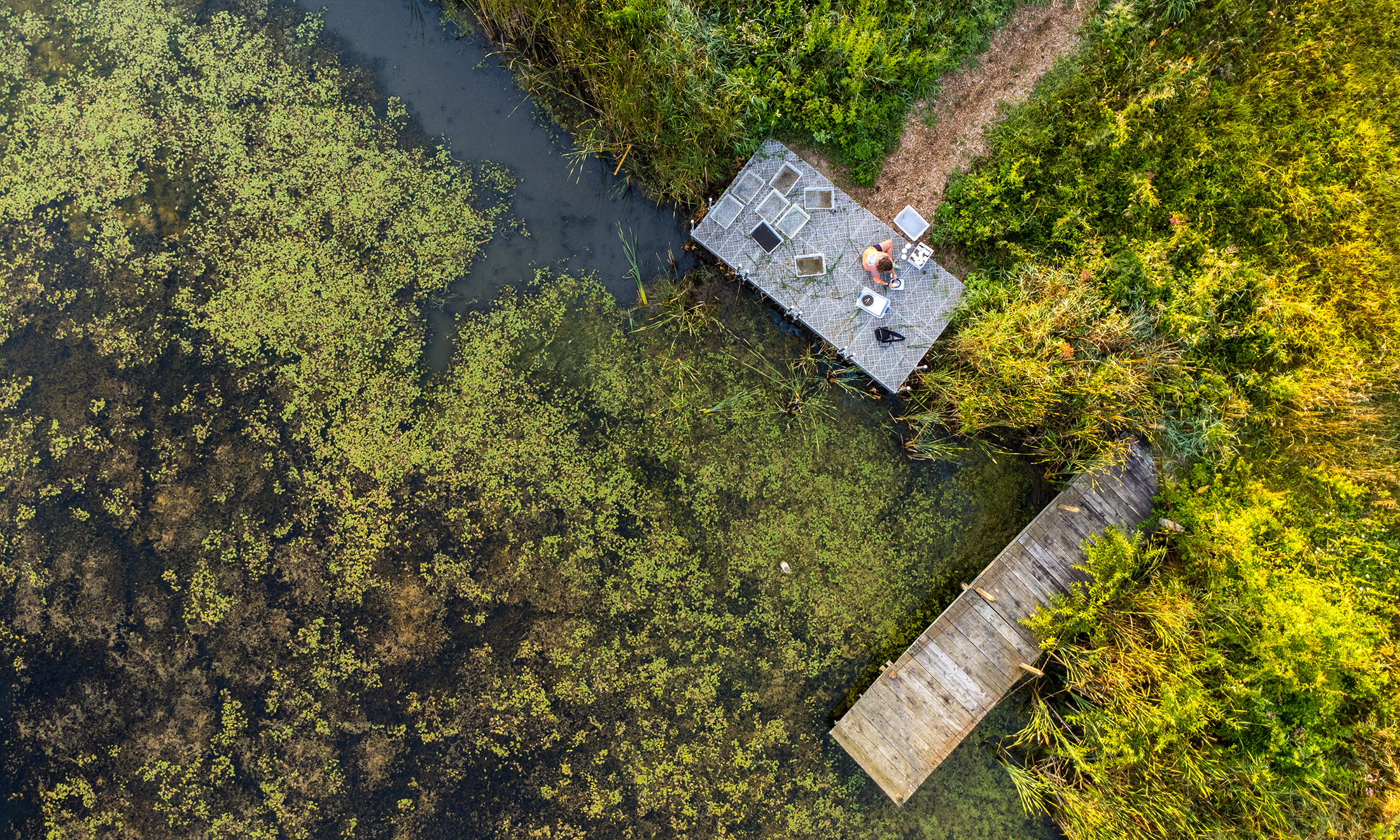
Overhead view of the experiment site

Elizabeth Parkinson

Elizabeth Parkinson at the experiment site at Seven Ponds Nature Center in Dryden, Michigan
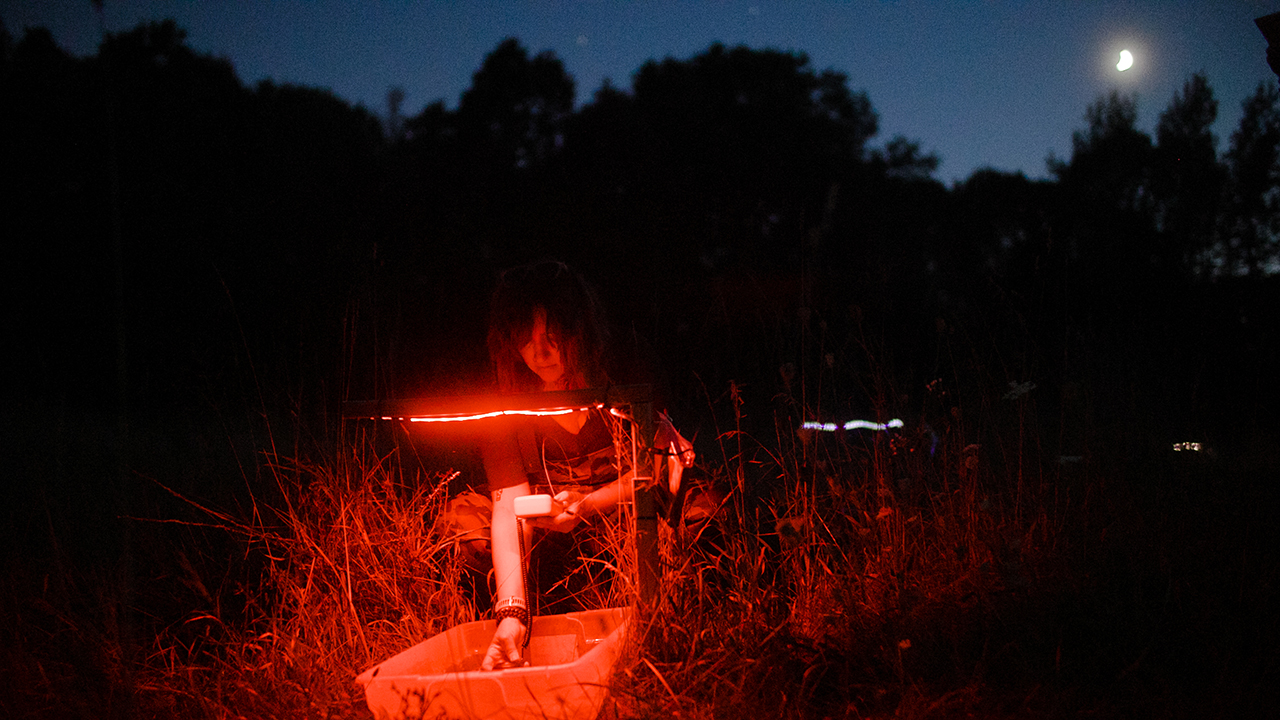
Elizabeth Parkinson, a doctoral student in Oakland University’s Department of Biological Sciences, has been awarded a Graduate Research Fellowship from the National Science Foundation. The fellowship supports outstanding graduate students who are pursuing master’s and doctoral degrees with a focus on NSF-supported science, technology, engineering and mathematics disciplines.
Parkinson’s research looks at how artificial light at night, also called light pollution, is affecting the ecology of insects, particularly those who begin their lives in water and move to land as their life cycle progresses. These insects, which include mosquitos, dragonflies and mayflies, are valuable food sources for organisms that live on land.
But, as Parkinson points out, they are also highly attracted to light. This attraction can disrupt the ecosystem as insects fixate on a light source and often die instead of fulfilling vital ecological functions like pollinating crops, containing pests and serving as food sources for other organisms.
“Because of the advancement of LED lighting technology over the past 20 to 25 years, it has become much cheaper and easier to light up the sky at night,” said Parkinson. “The research has not kept up with how fast these changes are happening and the impact they’re having on ecosystems. Insects in particular are incredibly diverse and important, but they get tend to get overlooked, so we don’t know how these changes could be affecting them.”
As a member of the Aquatic Ecology Lab at Oakland University, Parkinson is investigating these questions through a months-long experiment designed to gauge the attraction of insects to different-colored light sources.
“We have an experiment at Seven Ponds Nature Center, where we built traps that have LED lights of different wavelengths – white, purple, green, red, and dark, meaning no light,” she explained.
Parkinson’s traps are plastic containers filled with soapy water. Insects come to a light source, become trapped in the soapy water and are collected the next morning. She and Katri Studtmann, a master’s student from the Aquatic Ecology Lab, are looking for differences in the diversity and number of insects that get trapped near each light color.
“If we observe different insect communities at higher wavelengths compared to lower wavelengths, that could tell us something about the type of lighting we should use to minimize our impact on ecosystems,” Parkinson said. “This would have implications for the type of lighting used around boat docks, for example.”
Studtmann, whose research uses the same experiment to examine different insect species than Parkinson, noted that ecosystems are much more intricate – and sensitive to change – than most people realize.
“We impact the world in so many ways, whether we know it or not,” she said. “Usually, the ways humans disturb the natural world are harmful because organisms are not adapted to the things we change, so it affects their lifecycle and ability to reproduce. Hopefully, this research will help us better understand these impacts so we can avoid disturbing the ecological relationships that all living organisms, including humans, depend on.”
Parkinson echoed those sentiments: “Humans have a tendency to forget that we’re part of the ecosystem and the food web,” she said. “We often think of insects as a nuisance, but without these tiny creatures of the world, everything collapses. We absolutely need them in order to survive.”
This research aligns with the purpose of the NSF Graduate Research Fellowship, which includes supporting individuals who will contribute to research, teaching, and innovations in science and engineering, while also promoting the economic well-being of society at large. Along with being a doctoral student, Parkinson works at the non-profit Freshwater Forum at the Cranbrook Institute of Science, where she teaches middle and high school students about the importance of freshwater resources.
“I do a ton of work on freshwater education with underserved communities, particularly middle school students, and a huge part of my fellowship application was about incorporating a citizen science component with middle and high school students where they can do this experiment themselves,” said Parkinson. “I’ll visit the schools and show students how we can use their data to collaborate on a huge data set for the state of Michigan regarding insects and artificial light.”
Parkinson said she is grateful to receive the fellowship, which provides a three-year annual living stipend and cost of education allowance for tuition and fees, as well as access to professional development opportunities. The fellowship is highly selective, with only 12% of applicants receiving an award since the program was created in 1952. Currently, 42 Fellows have gone on to become Nobel laureates, and more than 450 have become members of the National Academy of Sciences.
“I’ve been out of school, working in my professional career, for about five years, so I don’t know if I would have been able to go back to school without something like this,” said Parkinson, who earned her master’s degree in biological sciences from OU in 2017. “I still feel shocked about it and also super fortunate.”
Biology Professor Scott Tiegs, head of OU’s Aquatic Ecology Lab and Parkinson’s adviser, believes she is a worthy fellowship recipient.
“The impacts of artificial light on ecosystems are just beginning to be understood,” said Dr. Tiegs. “With the NSF award, Lizz has really positioned herself to be among the vanguard of researchers who are driving the science on this important topic.”
To learn more about programs and opportunities in OU’s Department of Biological Sciences, visit oakland.edu/biology.


 September 15, 2022
September 15, 2022